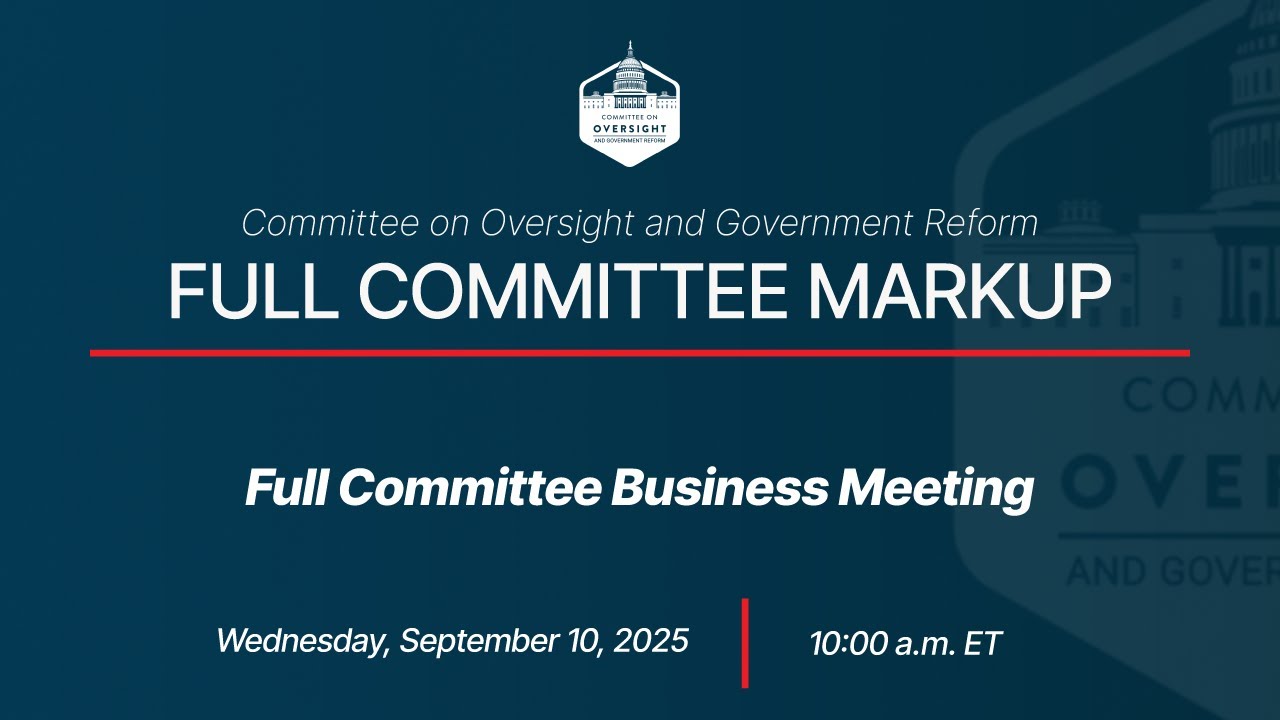Politics
Congressional Committee Votes To Repeal Marijuana Expungements Law In Washington, D.C.

A GOP-controlled congressional committee has approved a bill to repeal a Washington, D.C. law expanding expungements for marijuana possession.
The House Oversight and Government Reform Committee, chaired by Rep. James Comer (R-KY), voted on Wednesday to approve the legislation—one in a series of proposals the panel advanced targeting a variety of local D.C. policies.
The cannabis expungement policy is part of the Second Chance Amendment Act, a District law passed in 2022 that took effect the next year.
Under the law, the District’s judiciary was mandated to automatically expunge marijuana possession records for offenses that took place before D.C. enacted a limited cannabis legalization law in 2014.
Heres’s the key text of the D.C. law that the congressional bill would repeal:
“The Court shall order automatic expungement of all criminal records and court proceedings related only to citations, arrests, charges, or convictions for the commission of a criminal offense that has subsequently been decriminalized, legalized, or held to be unconstitutional by the Court of Appeals for the District of Columbia or the Supreme Court of the United States, or records related only to simple possession for any quantity of marijuana in violation of § 48-904.01(d)(1) before February 15, 2015…”
“The Second Chance Amendment Act expanded expungement and record sealing for more individuals, as well as expanded automatic expungement for certain crimes,” Comer said ahead of Wednesday’s vote. “Collectively, these D.C. laws have created an environment where convicted criminals in the district are not held fully accountable for their crimes.”
He also offered an amendment, which was adopted, that he said “fixes a legal reference in the bill and adds clarity that the effects of the bill’s repeals will apply prospectively.” The amended legislation then advanced on a vote of 24-20.
Rep. Eleanor Holmes Norton (D-DC), called the legislation “paternalistic” and said that “the over 700,000 D.C. residents, the majority of whom Black and brown, are capable and worthy of governing themselves.”
Advocates have already been frustrated with congressional interference with the District’s cannabis laws—particularly the annual renewal of an appropriations rider from Rep. Andy Harris (R-MD) barring D.C. from using its local tax dollars to implement a system of regulated recreational marijuana sales.
While Comer oversaw the repeal bill vote, he previously signaled that he’d be open to revisiting the rider. Asked about the possibility of lifting restrictions on D.C. legal cannabis sales, he said in late 2023 “if that’s what Washington D.C. wants, yeah.”
Last week, the House Appropriations Committee again advanced the underlying spending bill with the rider kept intact.
—
Marijuana Moment is tracking hundreds of cannabis, psychedelics and drug policy bills in state legislatures and Congress this year. Patreon supporters pledging at least $25/month get access to our interactive maps, charts and hearing calendar so they don’t miss any developments.
![]()
Learn more about our marijuana bill tracker and become a supporter on Patreon to get access.
—
Rep. Eleanor Holmes Norton (D-DC) has criticized appropriators for putting forward a bill that restricts the District’s autonomy in a number of ways, including the rider to “prohibit the use of funds to commercialize recreational marijuana.”
“I am outraged at the number and scope of anti-D.C. home rule riders in the bill released today,” Norton said when the measure cleared subcommittee in July.
The congresswoman said in May that she would again again push her colleagues to join her in an effort to remove the cannabis language.
“As Congress works on the fiscal year 2026 appropriation bill, I will continue to fight to remove this rider,” she said, while referencing a statement from the White House that called the District’s move to enact local marijuana reform an example of a “failed” policy that “opened the door to disorder.”
Trump’s budget request that he released in June similarly contained the Harris rider preventing marijuana sales in D.C., despite voters in the jurisdiction voting to approve legalization in 2014. Former President Joe Biden also repeatedly requested the continuation of the D.C. cannabis rider in budget proposals during his time in office.
While D.C. hasn’t been able to use its local funds to implement a system of regulated recreational cannabis sales over the last decade, local officials have taken steps to expand the city’s existing medical marijuana program as a workaround.




